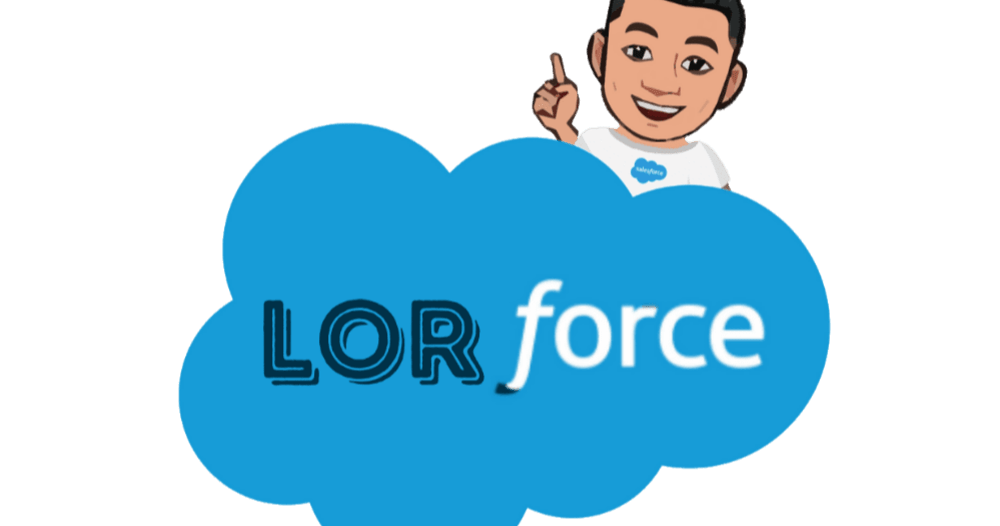Everything You Need to Know About a Career in Salesforce

Salesforce is everywhere. It’s become so popular amongst businesses that it’s created a whole new career...
We’ve pulled together everything you need to know about a career in Salesforce, including a full market overview and insights, plus the technical skills and courses you need to advance in the profession.
In this guide you will find:
- Salesforce in a nutshell
- Technical skills for Salesforce roles
- What to expect from a career in Salesforce
- Market insights for Salesforce roles
- Salesforce salaries
- Starting your Salesforce career? What to study.
Salesforce in a nutshell
Salesforce is the world’s #1 customer relationship management (CRM) platform. Its global adoption and ability to solve modern-day problems is unrivalled. That’s because Salesforce cleverly unites marketing, sales, commerce, service, and IT teams from anywhere in the world, and is commonly used to:
- Attract more buyers using personalised marketing
- Win more customers by getting to know their needs and concerns
- Deliver the amazing shopping experiences customers expect
- Respond faster to customer support issues on any channel
- Automate time-consuming tasks by building custom apps
Salesforce continually innovates, championing an inclusive community that has over 10 million individual innovators, disruptors, and community shapers evolving the Salesforce Ecosystem. There’s even been a number of businesses built on creating industry-specific apps within Salesforce.
Technical skills for Salesforce related roles
Given the variety of roles within the Salesforce ecosystem, the technical skills can vary. Here are a few streams and the skills required for each:
- Backend Development – APEX, Classes, Triggers, Visual force, SOQL
- Frontend Development – Lighting Web Components, Aura components
- Integration – Rest/ SOAP API’s, MuleSoft
- CI/CD – Salesforce DX, Salesforce Platform events
- Core Salesforce Ecosystem: Sales, Service, Experience Cloud
- Rising adoptions: Marketing, Commerce, OmniStudio, Einstein
What to expect from a career in Salesforce
The most enticing thing about Salesforce is its ability to solve real-life problems. Some examples are, to help with current Covid vaccine management and contact tracing, election campaign management, and emergency response. There are two main paths to take in a Salesforce related career:
Technical: Developer, Senior Developer, Tech Lead, Technical Architect
Functional: Administrator, Functional Consultant, Senior Functional Consultant, Functional Lead, Solutions Architect
Whichever path you take, you can look forward to ongoing learning and development within the Salesforce community. With constant updates from products, functions, capabilities, and features to help streamline and improve business processes.
Market insights for Salesforce roles
Currently, there are 25% more vacancies than available candidates! There’s been a long candidate shortage within Australia (which is likely to continue), as the adoption rate and demand for Salesforce products exceeds the supply of available talent... This means it’s a great time to start your Salesforce career!
Border closures have further contributed to the shortage of candidates, and we’ve seen a sharp rise in contract opportunities as companies compete to secure mid-senior talent. The most in-demand postions are Senior Developers, as the majority have progressed into Architect roles, while Junior Developers are not yet experienced enough to step up.
To help address the gaps, we’ve been approaching candidates with a JAVA development background to transition into Salesforce Development roles, due to similar syntax.
Salesforce roles and salaries
We’ve rounded up the current salaries you can expect across the different levels and roles:
- Salesforce Developers
Junior $90K – $125K base
Mid - $120K - $145K base
Senior - $150K - $170K
Tech Lead - $160K - $175K base
- Salesforce Administrators
Junior - $70K - $90K base
Senior – $90K – $125K- base
- Functional Consultants
Junior - $110K – $130K
Senior - $140K - $150K base
- Architects
Solutions Architect - $175K – $210K base
Technical Architect - $180K – $215K base
Starting your Salesforce career? What to study.
You’ll want to get Salesforce certified before you can really begin. Start with these two courses offered through their own training platform, Trailhead.
Salesforce Administrator:
Administrator is the best introductory course to begin your career as you make your decision to enter the technical or functional path. It’s designed for those who have experience with Salesforce and continuously look for ways to assist their companies in getting even more from additional features and capabilities. You’ll find it covers the platform as a whole and how the CRM works behind the scenes.
Platform Developer 1:
If you’re the more technical type, then PD1 is the course for you. Given the shortage in developers, you may find more opportunities in the market. This course helps students understand how to develop and deploy custom business logic and custom interfaces using the programmatic capabilities of the Lightning Platform. You’ll learn when to use declarative versus programmatic methods and be able to extend the Lightning Platform using Apex and Visualforce.
Don’t worry… if this doesn’t mean much to you yet, it soon will.
Is Salesforce in your future?
This is a sound overview of Salesforce career paths for anyone considering a career change. Whether you’re just starting out or you’re a seasoned pro, get in touch with Damien Lor (#LorForce) to discuss our opportunities - especially if you have a JAVA dev background!
Damien Lor | 0404 079 818 | damien@talenza.com.au
#LorForce